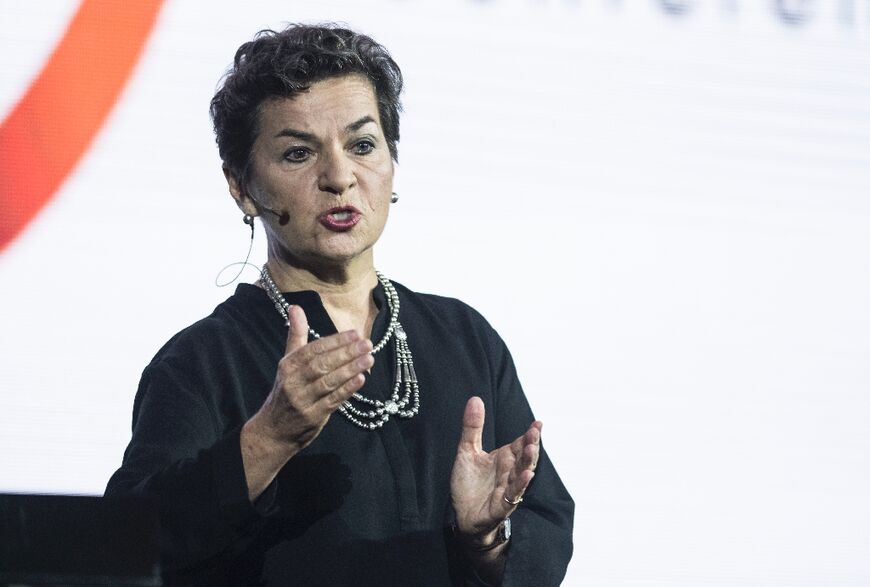Campaigners rally COP27 to fight climate disinformation

Campaigners on Tuesday urged the COP27 summit to fight disinformation that undermines efforts to limit deadly global warming, as a survey showed millions of people believe climate change falsehoods.
In an open letter, the campaigners called on UN climate talks delegates and social media giants to adopt a common definition of climate disinformation and misinformation, and work to prevent it.
They also urged the bosses of seven digital giants, including Facebook, Google and Twitter, to implement tough polices preventing false climate information spreading on their platforms, similar to measures taken on the Covid-19 pandemic.
"We cannot beat climate change without tackling climate misinformation and disinformation," the letter said.
"While emissions continue to rise, humanity faces climate catastrophe, yet vested economic and political interests continue to organise and finance climate misinformation and disinformation to hold back action," it added.
The letter was signed by 550 groups and individuals, including former leading UN climate official Christiana Figueres and diplomat Laurence Tubiana, one of the architects of the 2015 Paris Agreement, which is the current basis for global targets to curb climate change.
Misinformation is false information that may be shared in good faith. Disinformation is spread with the intent to deceive.
The signatories demanded "swift and robust global action from COP decision-makers and tech platforms to mitigate these threats".
- 'Perception gap' -
The letter accompanied a survey showing the extent that false climate information is believed in six of the world's major economies.
It found large sections of the populations of Australia, Brazil, Britain, Germany, India and the United States believe false claims about human-caused climate change.
At least 20 percent of those surveyed in each country believe current global warming is a natural phenomenon and not caused by humans.
This is despite global warming's human causes being exhaustively documented by the UN Intergovernmental Panel on Climate Change, which says human-made climate change is "unequivocal".
The survey was published by two climate content watchdogs, Climate Action Against Disinformation and the Conscious Advertising Network, and was compiled by polling respondents to YouGov panels weeks ahead of COP27.
"There is a big gap in public perception and the science on issues as basic as whether climate change exists or whether it is mainly caused by humans," the survey's authors said.
"This perception gap weakens the public mandate for climate action and undermines the negotiations to achieve the goals of the Paris climate agreement."
Climate disinformation monitors say the fossil fuel industry has been deliberately sowing doubt about the role of carbon emissions in global warming for decades.
- Belief in 'hoax' -
The survey found that 44 percent of people in Australia and 46 percent in the United States believe climate change is not caused mainly by human activity.
In the United States, 23 percent of people think climate change is a hoax made up by "elite" organisations, the survey showed.
In India, 85 percent of the population believed at least one piece of climate misinformation. Among the six countries, that measure was lowest in Britain at 55 percent.
Respondents who consumed news at least five days per week were more likely to believe certain misinformation.
"This suggests that news outlets' reporting regularly includes misinformation narratives," the report said.
Facebook, Google and other tech giants have said they are acting to make false climate claims less visible, including in paid advertisements.
But in a detailed study released earlier this year, the Institute for Strategic Dialogue said messages aiming to "deny, deceive and delay" climate action were prevalent across social media.
The ClimateScam hashtag is currently the top term that pops up on Twitter's search tool when a user types "climate".
UN Secretary General Antonio Guterres last week used the COP27 stage to strike out at greenwashing -- a form of corporate disinformation.
He called for an end to the "toxic cover-up" by companies he said were "using bogus 'net-zero' pledges to cover up massive fossil fuel expansion".






